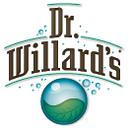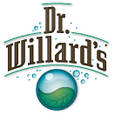THE BASICS OF VITAMIN B
WHAT IS VITAMIN B?
Vitamin B is actually a composite of eight different vitamins (B1, B2, B3, B5, B6, B7, B9, B12) that play different roles in our bodies. They are water soluble vitamins, which just means that they dissolve in water and are not stored in our bodies. Once our bodies use the nutrients from the vitamins, they release the rest through our urine. These nutrients help your body to create energy from the food you consume and aid the body’s process of metabolizing proteins and fats.
WHAT FOODS CONTAIN VITAMIN B?
The great thing about Vitamin B is that it is found in food, and most people who do not have a large deficiency do not need to take additional supplements. Examples of foods that have Vitamin B are:
- Whole grains and kale (B1)
- Milk and yogurt (B2)
- Eggs and beans (B3)
- Avocados and meat (B5)
- Sunflower seeds and carrots (B6)
- Barley and potatoes (B7)
- Salmon and beets (B9)
- Shellfish and pork (B12)
WHAT DOES THE VITAMIN B COMPLEX ENTAIL?
Vitamin B is a composite of eight water soluble vitamins which play different roles, with some working together for common functions.
- Vitamin B1 (Thiamine) – Thiamine helps to extract energy by breaking down simple carbohydrates, such as honey. Additionally, it boosts our immune systems by making new cells, RNA and DNA. A deficiency of Vitamin B1 can lead to ailments such as beriberi and inflammation of the nerves (neuritis).
- Vitamin B2 (Riboflavin) – Riboflavin is an antioxidant that reduces the damage done to our cells and DNA by free radicals, which play a big role in preventing the aging process and several diseases. B2 also aids in the production of red blood cells and helps the body to grow. A deficiency of Vitamin B2 may be experienced by those who maintain a poor diet; a deficiency can lead to ariboflavinosis, which is a disease that affects the eyes, skin, blood and mouth.
- Vitamin B3 (Niacin) – Niacin raises HDL cholesterol. While cholesterol has gotten a bad reputation in recent years, there is good and bad cholesterol. HDL is the good kind, and the more of it you have actually lowers the amount of bad cholesterol, LDL in your blood. B3 also plays a role in extracting energy during metabolism from glucose, alcohol and fats. Most developed countries don’t see deficiencies of niacin; however not enough B3 in your body can lead to pellagra, which causes insomnia, aggression, dermatitis, and other ailments.
- Vitamin B5 (Pantothenic Acid) – Pantothenic acid is found in almost all food, and its job is to break down fat and carbohydrates and convert them into energy. B5 also creates certain hormones, such as testosterone. Like most other B complex vitamins, most people do not have a lack of B5, but a deficiency can cause paresthesia, a tingling and burning of the skin, and acne.
- Vitamin B6 (Pyridoxine) – Pyridoxine controls the quantities of homocysteine, an amino acid in our bodies. Furthermore, it helps to control or sleep and stress hormones. Vitamin B6 deficiency can cause seborrhoeic dermatitis, which is a skin condition.
- Vitamin B7 (Biotin) – Biotin “supports the health of the skin, nerves, digestive tract, metabolism, and cells. Biotin may also help to treat some types of nerve pathology, such as the peripheral neuropathy that can result from kidney failure or diabetes,” according to WebMD (http://www.webmd.com/vitamins-and-supplements/lifestyle-guide-11/supplement-guide-biotin). A lack of B7 does not affect adults, but can cause growth issues and neurological disorders in children.
- Vitamin B9 (Folate) – Folate, or folic acid, is extremely important for pregnant women and infants, as it essential for the proper growth and development of the baby, as well as preventing neurological defects. Folate also plays a role in the making of red blood cells. Pregnant women who do not have enough folic acid have given birth to children with birth defects.
- Vitamin B12 (Cobalamin) – Cobalamin not only creates red blood cells like some of the other B vitamins, but it also also makes DNA, and helps to make hemoglobin, a protein responsible for oxygen. Certain people, especially vegans, can have a deficiency of Vitamin B12, which can lead to anemia.
How Do You Get the Most of Vitamin B Supplements?
One of the best ways of getting the B complex vitamins into your system is by eating a healthy diet with foods that contain these water soluble vitamins. Some of the best choices are salmon, eggs, chicken, green vegetables and beans. However, if you choose to add Vitamin B supplements to your diet, there are tips for helping you to maximize their effects.
- Food Based Tablets – There are a lot of varieties of B complex vitamins on the market. However, most of them are synthetic versions created in laboratories. Manufacturers prefer to make vitamins in labs because it is cheaper than using real food, and the pills have a longer shelf life. Many studies have found that synthetic vitamins may not always be recognized by the body, and some contain ingredients that have been found harmful to our health. For example, Vitamin B1 made in labs usually contains “coal tar, ammonia, acetone, and hydrochloric acid,” claims The Sun Warrior (http://www.sunwarrior.com/news/natural-vs-synthetic-vitamins/). The article also explains that synthetic Vitamin B2 has acetic acid and nitrogen, B3 contains formaldehyde, and the list goes on from there. Many of these ingredients are not absorbable by the body, but, furthermore, they are known toxins. There are many food-based vitamin brands on the market that do not hinder the bioavailability of nutrients from the supplements.
- Appropriate Doses – Make sure to take the right dose of Vitamin B for your needs. The Harvard School of Public Health (http://www.hsph.harvard.edu/nutritionsource/vitamin-b/) reccomends taking 400 micrograms of B3; 1.3 to 1.7 milligrams of B6; and 2.4 micrograms of B12 per day.
- Nutrient Absorption – While Vitamin B does contain many beneficial nutrients, our body does not provide complete nutrient absorption for vitamins. Furthermore, because these supplements are water soluble, they get released through our urine, and do not remain stored in our bodies. Just because you take a full dose of folic acid, for example, does not mean your body will metabolize all of it. However, there are ways to promote bioavailability, or the process of the absorption of nutrients. A recent study by Integrative Health Systems, LLC, found that Willard Water promotes the nutrient absorption of water soluble vitamins, such as Vitamin B. The study compared vitamin usage with and without the addition of Willard Water. It was found that after 30 days of taking Vitamin B (B12 and Folate) accompanied by Willard Water, the amount of nutrients that were absorbed by cells in the body increased. Therefore, it was concluded that this Willard Water helped promote nutrient absorption of Vitamin B in the body.
The Vitamin B complex plays many roles that are beneficial for the body. Most importantly, it helps to extract energy from the food that we eat. Although adding Vitamin B supplements to your daily routine will not provide the same jolt of energy as a cup of coffee, they will help you maintain a healthy lifestyle. In order to maximize the benefits of these water soluble vitamins, remember to take the right dose, and be sure to drink your Willard Water.


